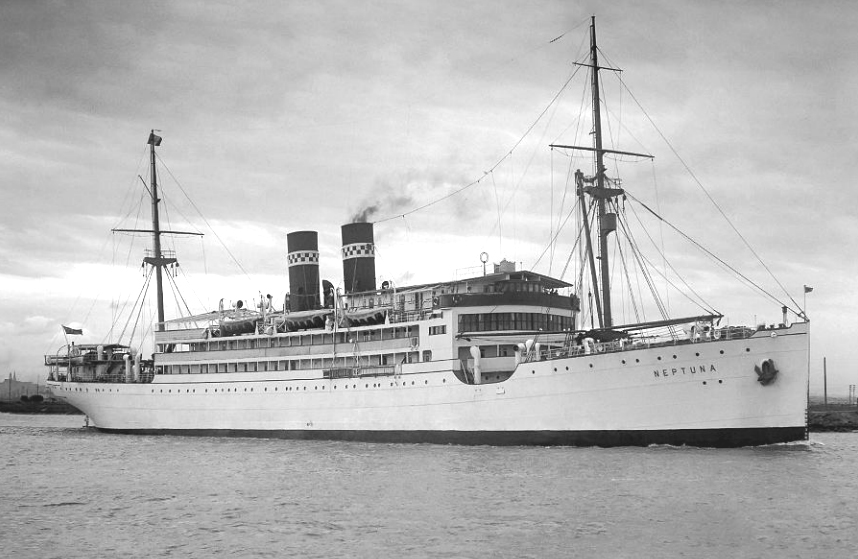Neptuna (Burns Philp)
 Departing from Sydney in August 1941 for Hong Kong via Papua New Guinea, Neptuna disembarked troops and discharged cargo at Port Moresby and Rabaul, the latter including two mobile 3-inch anti-aircraft guns. On the return voyage from Hong Kong, she was ordered to shelter in Madang from the predations of a German commerce raider
suspect in the area. Her voyage continued after a few days.
Departing from Sydney in August 1941 for Hong Kong via Papua New Guinea, Neptuna disembarked troops and discharged cargo at Port Moresby and Rabaul, the latter including two mobile 3-inch anti-aircraft guns. On the return voyage from Hong Kong, she was ordered to shelter in Madang from the predations of a German commerce raider
suspect in the area. Her voyage continued after a few days.
The ship was at Manila when Japan entered the Second World War on 7 December 1941, and homeward-bound was diverted to Rabaul, Madang, Lae and Salamaua to evacuate civilians ahead of the Japanese threat. Some were disembarked at Townsville, reducing the unauthorized overload, and the ship reached Sydney on 31 December. Neptuna then commenced loading Defence stores and equipment, “topping up” at Sydney’s explosive anchorage with two hundred depth charges (stowed in the aft holds) and a large quantity of anti-aircraft shells, thus virtually becoming an ammunition ship.
Following a number of cargo loading delays due to industrial disputes, the ship eventually sailed at the end of January 1942, reaching her destination Darwin on 12 February. There, due to port congestion, she was ordered to a particular anchorage, with indications of her being there for some time. Major engine repairs on one of its two main engines were thus undertaken. Six days later a merchant ship convoy, returned with significant Australian and United States naval escort from the Timor area, having suffered some Japanese air attacks.
Moving to the wharf early on 19 February and commencing ammunition discharge both to wharf and an alongside HMAS “Swan”, this operation (being assisted by crew members) incurred industrial wrath and confrontation. At this time, what was first thought to be leaflets from aircraft turned out to be a major Japanese bombing raid. Neptuna initially suffered hull damage from a nearby explosion, then three direct hits. Listing, her crew were ordered to abandon ship, some jumping into the harbour. Then, fire entering the explosives holds, the ship blew apart. Killed were the Master and nine officers (out of twenty-one) and forty-five of the one hundred and twenty-five Chinese crew. Seven awards for bravery, some posthumous, were made in connection with this event, reflecting as it did, a lack of preparedness for and total commitment by some towards unreserved prosecution of the war.